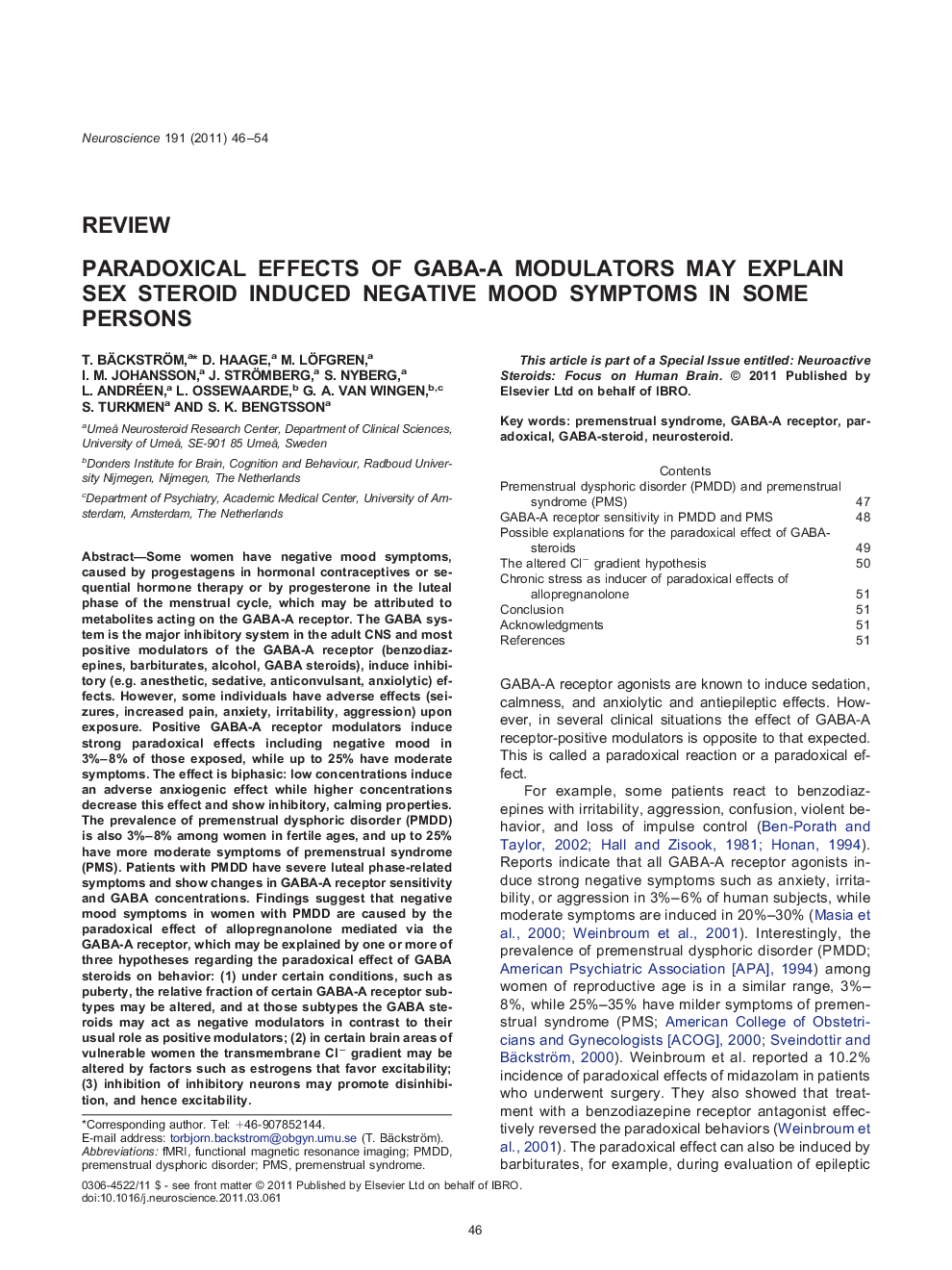| کد مقاله | کد نشریه | سال انتشار | مقاله انگلیسی | نسخه تمام متن |
|---|---|---|---|---|
| 4338780 | 1614885 | 2011 | 9 صفحه PDF | دانلود رایگان |

Some women have negative mood symptoms, caused by progestagens in hormonal contraceptives or sequential hormone therapy or by progesterone in the luteal phase of the menstrual cycle, which may be attributed to metabolites acting on the GABA-A receptor. The GABA system is the major inhibitory system in the adult CNS and most positive modulators of the GABA-A receptor (benzodiazepines, barbiturates, alcohol, GABA steroids), induce inhibitory (e.g. anesthetic, sedative, anticonvulsant, anxiolytic) effects. However, some individuals have adverse effects (seizures, increased pain, anxiety, irritability, aggression) upon exposure. Positive GABA-A receptor modulators induce strong paradoxical effects including negative mood in 3%–8% of those exposed, while up to 25% have moderate symptoms. The effect is biphasic: low concentrations induce an adverse anxiogenic effect while higher concentrations decrease this effect and show inhibitory, calming properties. The prevalence of premenstrual dysphoric disorder (PMDD) is also 3%–8% among women in fertile ages, and up to 25% have more moderate symptoms of premenstrual syndrome (PMS). Patients with PMDD have severe luteal phase-related symptoms and show changes in GABA-A receptor sensitivity and GABA concentrations. Findings suggest that negative mood symptoms in women with PMDD are caused by the paradoxical effect of allopregnanolone mediated via the GABA-A receptor, which may be explained by one or more of three hypotheses regarding the paradoxical effect of GABA steroids on behavior: (1) under certain conditions, such as puberty, the relative fraction of certain GABA-A receptor subtypes may be altered, and at those subtypes the GABA steroids may act as negative modulators in contrast to their usual role as positive modulators; (2) in certain brain areas of vulnerable women the transmembrane Cl− gradient may be altered by factors such as estrogens that favor excitability; (3) inhibition of inhibitory neurons may promote disinhibition, and hence excitability.This article is part of a Special Issue entitled: Neuroactive Steroids: Focus on Human Brain.
▶Some women have negative mood during the luteal phase of the menstrual cycle. ▶ Paradoxical aversive effects are shown by all GABA-A receptor modulators. ▶The effect is biphasic, low levels induce aversion and high levels are calming. ▶Chloride (CL−) flux change through open GABA-A receptors might be the explanation. ▶Certain GABA-A receptor subunit combinations are very sensitive for neurosteroids.
Journal: Neuroscience - Volume 191, 15 September 2011, Pages 46–54